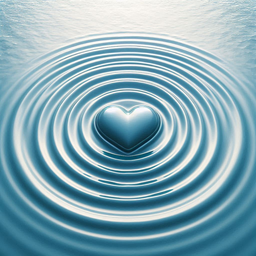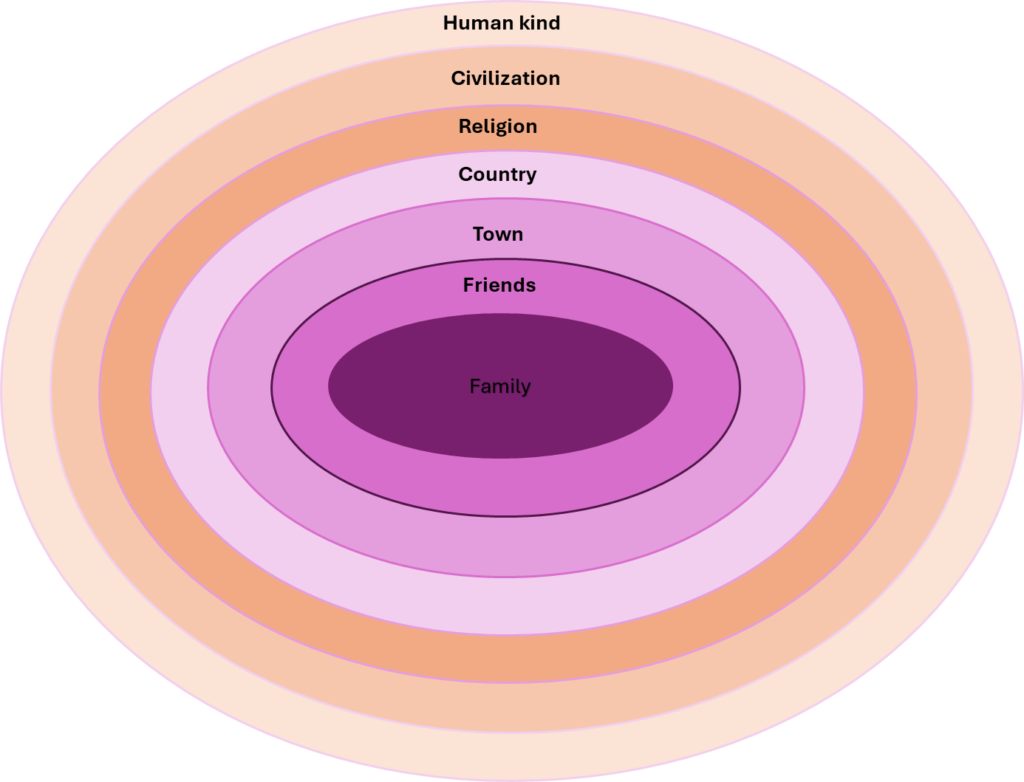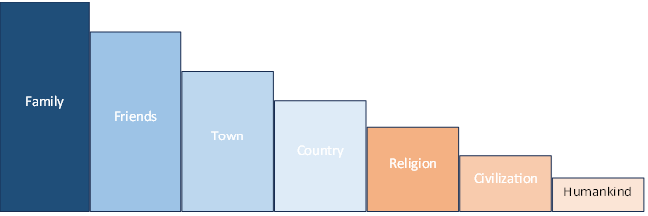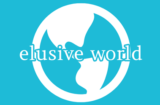By Ron Raskin

Empathy is one of the most profound human traits, fundamental to cooperation and the functioning of society. It’s well known that “empathy increases with similarities in culture and living conditions. Empathy is more likely to occur between individuals whose interaction is more frequent”. For most people, it’s very different when someone in the neighborhood gets hurt and when someone on another continent gets hurt. As a result, each person exists within multiple “empathy circles.” There are many such circles. Below are some of them:

Although these circles are similar among people with similar backgrounds, they aren’t identical. Each person has their own unique function that describes their empathy across different circles, sometimes with a steep slope and sometimes with a flat one. Perhaps seeing empathy as a variable function is more accurate than the simplistic assumption today that each person has a fixed level of empathy, either greater or lesser.
It can look like this:

People who spread love to all of humanity typically lean toward peace and support equality-focused ideologies. However, they may also show greater empathy toward larger groups with higher overall suffering due to their size, regardless of the actual cause and effect. As a result, they might end up sacrificing smaller, weaker groups in an effort to reduce the total amount of suffering.
Or like this:

This one probably describes most people.
Or with a very sharp slop like this:

Which describes more self-centered individuals, possibly with stronger connections to criminals, businesspeople, and those in positions of power.
As a result, when people are forced to choose between those in their inner circles and those in more distant ones, they tend to prioritize the close ones. If we reframe the classic trolley problem in a more abstract way, where the weight of each life depends on their place in these circles, people would likely choose to save a single family member, even at the expense of many lives in the outer circles.
It’s no surprise that these empathy circles create a natural bias in the information we consume. Like wind over the sea, this bias sends waves, shaping how we perceive information. It’s a tool that skilled propagandists use as a key part of their brainwashing machine. This bias influences political decisions, determining who is labeled the “good guys” and the “bad guys.” When driven by the force of autocratic winds, it blows in a direction dictated by the autocrat, turning into a weapon that controls human minds.
Some might view this bias as the root of all evil, but in reality, nothing in our nature is inherently evil. Instead, it’s a tool that nature uses to our advantage in certain contexts. Building a society that includes all of humanity doesn’t happen overnight. It’s much easier to start with smaller groups that learn to communicate, coordinate, and develop governance structures. Throughout history, these groups expand step by step, often driven by external pressure from larger, stronger forces. This pressure brings people within smaller groups closer together, fostering unity and forming larger groups. In this way, empathy—though a source of bias and conflict—also drives the growth of human society and cooperation.
The only sad thing is that the road is covered with too much hate and blood…

